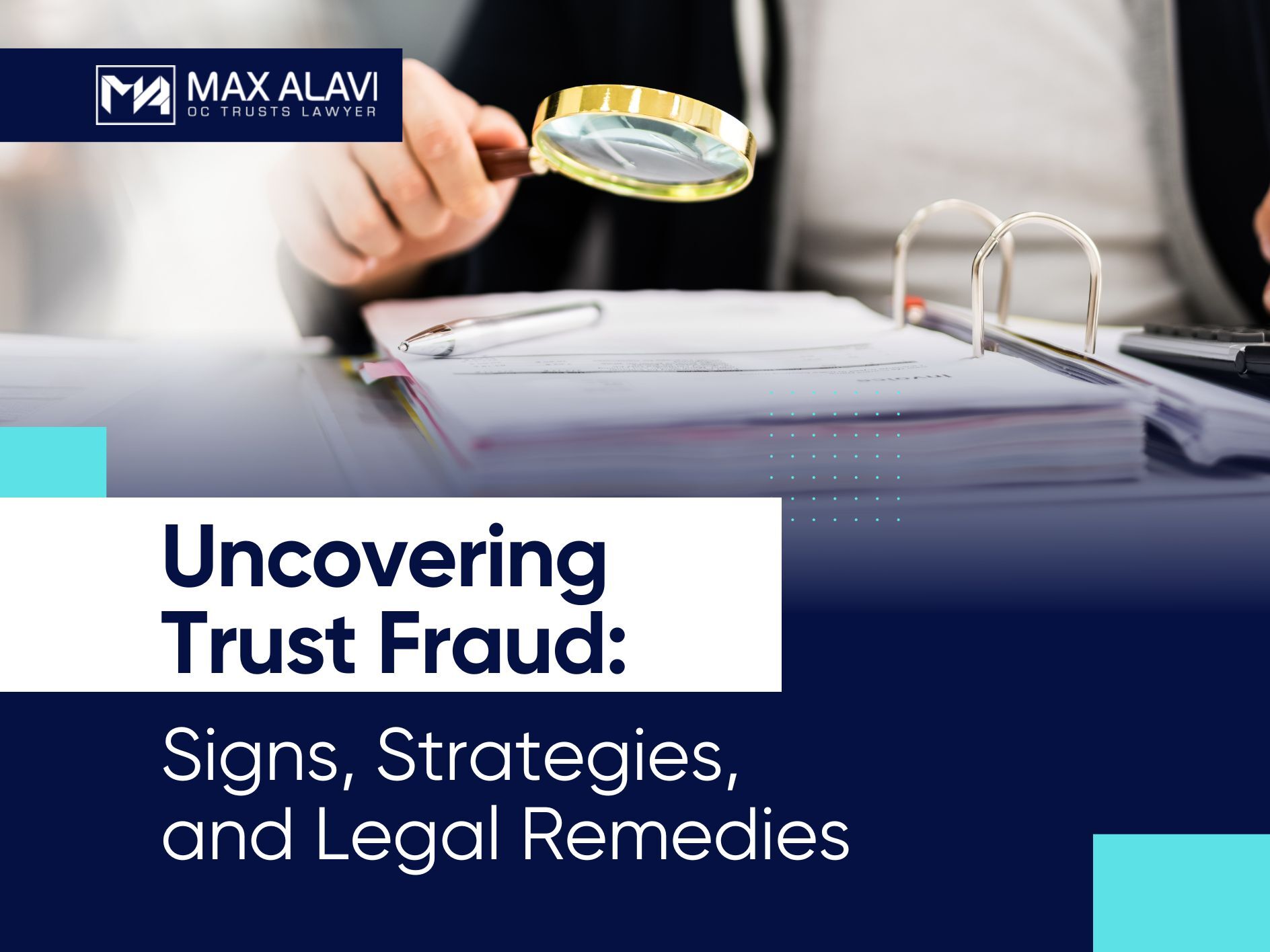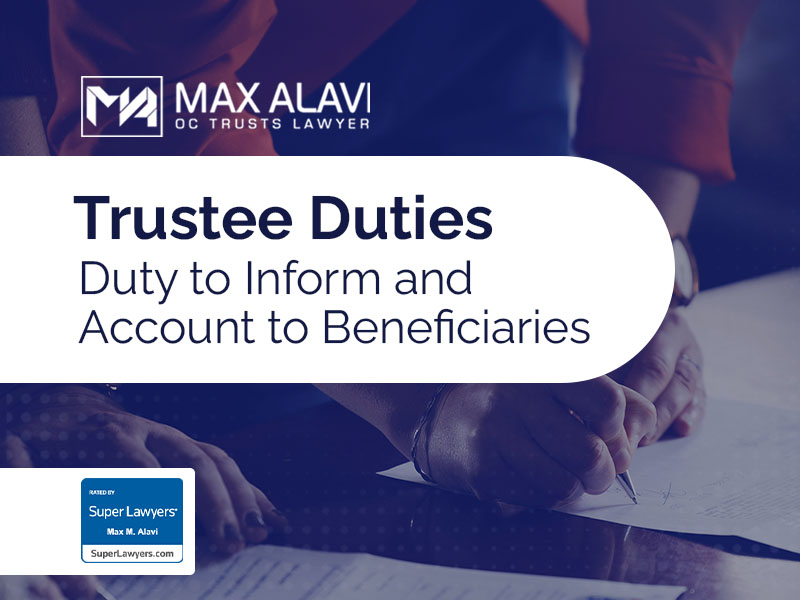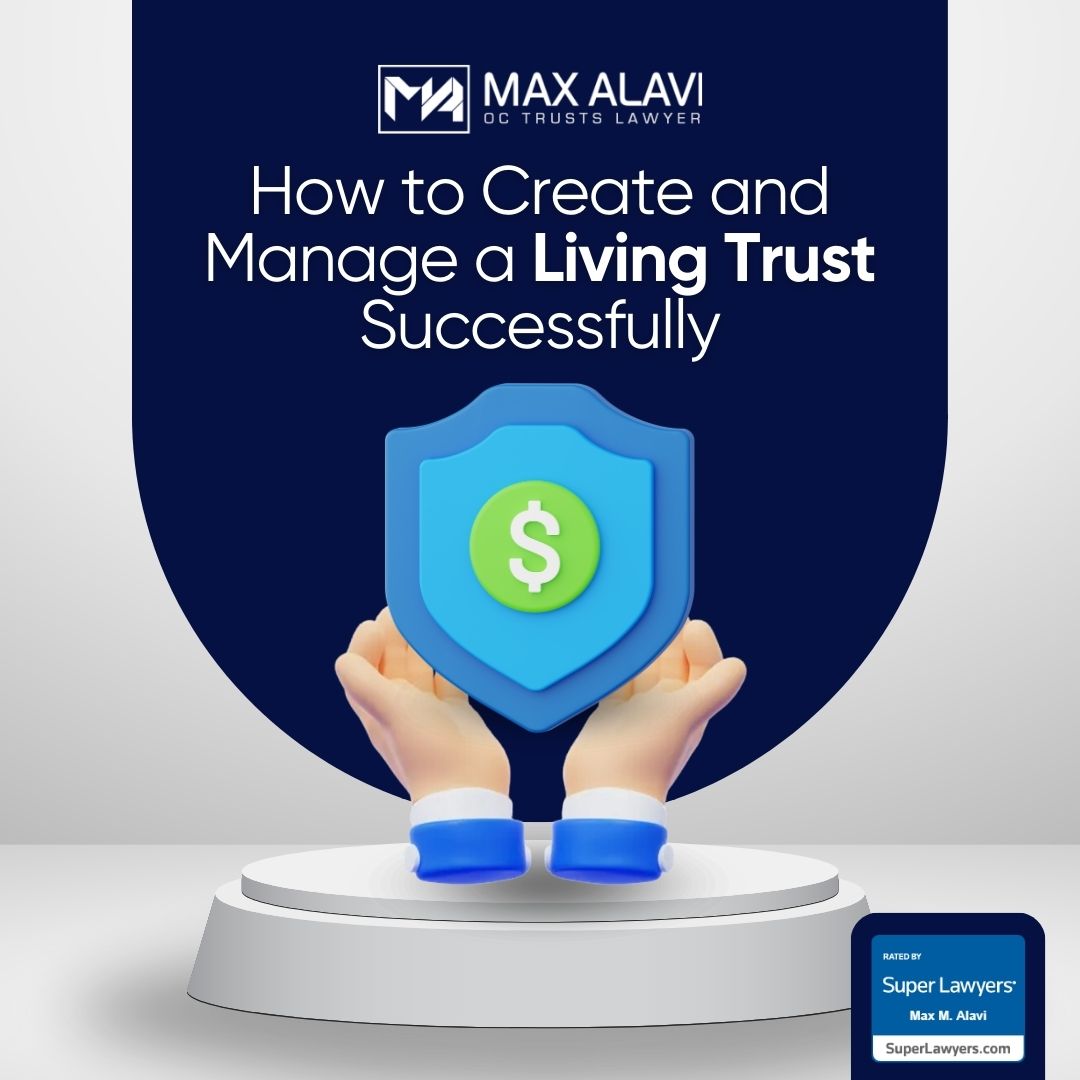Living trusts provide an effective way to preserve your assets and to ensure that, upon your death, those assets are rightly distributed among your named heirs and beneficiaries. One of the great benefits of a living trust is that it generally provides a way for those heirs and beneficiaries to avoid probate court, along with any other costly legal processes. However, trusts can be disputed or challenged in court, mainly if there is reason to suspect fraudulent activity.
Indeed, evidence of fraud can have serious ramifications for the heirs and beneficiaries named by the trust and the trustee tasked with the trust’s administration. Before creating a living trust, it’s helpful to know the most common signs of trust fraud and how it can be prevented or resolved.
Recognizing the Signs of Trust Fraud
Sadly, trust fraud is a common type of estate planning scam that generally targets older people. It usually involves bad actors trying to sell unnecessary trust documents, or else pedal unauthorized legal advice. In some cases, fraudulent activity may take the form of a “living trust mill,” where trusts are provided en masse without regard for specific needs or circumstances.
Here are some of the most common warning signs to look out for:
-
Claims of specific tax savings.
While using a trust can often result in tax savings, the reality is that tax planning is complicated, and trusts themselves can have a lot of variation. As such, it’s usually a red flag when you see a legal service promising they can cut your tax rate by 40 percent, or whatever the figure may be.
-
Guarantees against legal challenges.
Generally speaking, establishing a living trust is a good way to avoid the need for estate litigation. However, family disputes can occur at any time, resulting in legal challenges that require legal remedies.
-
Promises of asset protection.
Some scammers claim that living trusts can be used to evade creditors, but this simply isn’t the case. The assets in a trust often can be claimed by creditors, making this another omen to watch out for when detecting trust fraud.
The bottom line? Preventing trust fraud requires constant vigilance. Make sure you do your due diligence before choosing to work with any estate planning firm or legal service, especially if it seems like they’re making audacious promises.
Strategies for Protection and Prevention
There are a number of ways to avoid fraudulent activity with your trust. For starters, it’s important to be proactive in detecting trust fraud, not only by remembering the red flags noted above but also by following these guidelines:
- Always make sure you check with a reputable estate planning attorney before you sign anything.
- Never sign anything if you don’t understand what it says
- Avoid entering any kind of high-pressure sales environment.
- Make sure you know what options are available to you for reviewing or updating your trust documents at any time.
Some additional tips to keep in mind, even after your living trust has been drafted:
- Ensure the person you choose to be your trustee is responsible, honest, and professional.
- Schedule a regular trust document review, preferably with your attorney. Generally speaking, an annual trust audit is sufficient.
- Consider enlisting a trust protector; this is a third-party organization that provides certain actions to verify and safeguard your trust and the assets within it.
Legal Remedies for Trust Fraud
Even with this high level of vigilance, you may still wind up in a situation where you fall prey to trust fraud. The question is, what can you do to make things right? Fortunately, there are a number of legal remedies available for dealing with trust fraud.
If you believe that you have been a victim of a trust scam, you have every right to report it to the authorities. While getting police investigators involved can take some time, especially since it requires a full trust audit and trust document review, it can nevertheless be an effective way to seek restitution.
You can also hire an expert trust litigation attorney to assist you with estate litigation, especially if you believe the fraudulent activity stems from a disreputable trustee or from undue influence on the part of a named heir or beneficiary. An estate litigation expert can help you resolve your legal challenge to the trust, often through negotiation or settlement.
Seek A Qualified Living Trust Litigation Attorney Today
A living trust should provide peace of mind to the grantor, the heirs, and the beneficiaries. Sadly, this isn’t always the case, particularly when trust fraud is involved. To deal with possible fraud, seek help from a qualified living trust litigation attorney. For those in the Orange County and Los Angeles County communities, consider the proven track record of the OCTrustsLawyer.com team. Contact us today to schedule a consultation with Max Alavi, who has been designated Super Lawyer in Southern California.






